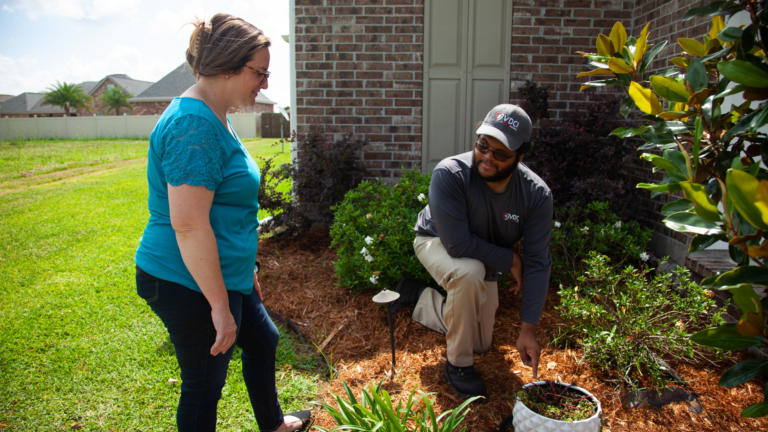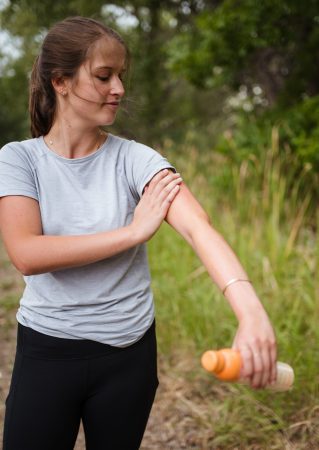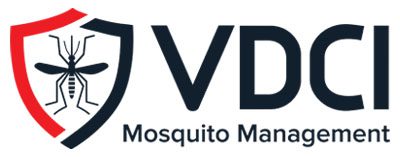Teaching Citizens How to Protect Themselves from Mosquitoes
Government leaders work hard to keep their communities safe. Mosquito management is an important part of these efforts. The threat of West Nile, Dengue, EEE and other mosquito-borne diseases can frighten the public and detract from enjoyment of outdoor amenities. No leader wants to experience the stress or public outrage associated with a disease outbreak – not to mention the impact it has on the community that they care so much about. Mosquito prevention is key, and public education is a crucial component of preventing bites and reducing breeding habitats.
Most people view mosquitoes as nuisances that hinder the enjoyment of camping, gardening, sports games, nature walks, fishing, neighborhood cookouts, and other outdoor activities. While this is true, mosquitoes are also responsible for killing more than one million people and animals worldwide annually through the transmission of diseases. When the general public understands how these diseases are spread, the habitats in which mosquitoes breed, and effective ways to protect themselves when outdoors, they can help limit the dangerous impact of mosquitoes and reinforce efforts of an Integrated Mosquito Management program.

Community education is a critical part of an Integrated Mosquito Management program – a comprehensive management approach that targets mosquitoes at every stage of their life cycle, including surveillance, disease testing and the implementation of ground or aerial control measures when necessary. Mosquito management efforts have a greater chance of long-term success when supported by the public. As a mosquito management company with a mission of protecting public health, VDCI collaborates with government agencies, mosquito abatement districts, health departments, schools, and public organizations to disseminate information across communities.
For maximal impact, messaging and resources should educate the larger community about the importance of personal protection and explain the influence every person has on mosquito populations in their area:
Personal Protection
One of the most beneficial ways to prevent the spread of mosquito-borne diseases is personal protection. Physical and chemical barriers can effectively keep bites at bay when spending time outdoors.
- Defend yourself with an EPA-registered repellent: https://www.epa.gov/insect-repellents/find-repellent-right-you
- Dress in closed toe shoes and loose fitting pants and long sleeve shirts that are light in color.
- Keep dogs and cats up-to-date with preventative heartworm medicine.
Avoid the outdoors during dawn and dusk hours when mosquitoes are most active.

Property Maintenance
Residence and property maintenance also play a vital role in mosquito prevention. Mosquitoes require standing water in order to breed. It’s essential to identify and regularly drain containers where water may collect. These may include:
- Bird baths
- Flower pots and buckets
- Outdoor pet bowls
- Children’s toys and playsets
- Tires and lawncare equipment
- Pool covers
- Potholes
- Tree stumps
- Canoes and kayaks
Consistently monitoring and clearing gutters and stormwater ditches is important to ensure water is correctly diverted during rainstorms. Mosquitoes also prefer cool, shady areas. Keeping weeds, bushes, and shrubbery trimmed can help reduce places of respite.

Communication Channels
It’s important to distribute information through as many communication channels as possible. Parish and county websites are influential platforms to provide mosquito prevention tips and links to relevant resources. Sharing this information through social media may expand messaging even further. Additionally, instructing city representatives during council meetings can provide them with actionable knowledge to educate their constituents.
Utilizing industry experts to educate community members is also a favorable option. Presentations at schools, libraries, local clubs, senior citizen homes, boy scouts, and public health expos can also help to spread the word about mosquito risks. By focusing on protection and prevention, the community can work together to reduce the risk of disease transmission.
A note on DIY Solutions
It can be tempting for citizens to purchase yard sprays or foggers from home improvement stores, but in the long run, these products can have disastrous consequences. Many products available to consumers are not registered with the Environmental Protection Agency (EPA) for the management of mosquitoes. Overuse of these products, as well as failure to follow label guidelines, can allow mosquitoes to develop resistance to insecticides, including the more advanced products that are only accessible to licensed mosquito management experts.
Instead of DIY spraying, homeowners can support the mosquito management program in their local community by following the best practices mentioned above and becoming educated on the science-backed solutions included in an IMM program. Professional IMM programs may involve:
- GIS mapping and data collection
- Surveillance and disease monitoring
- ULV (ultra-low volume) pesticide applications
- Database reporting
Knowledge is key when it comes to reducing dangerous mosquito populations in a community. Ultimately, these preventative efforts can be summed up as the 4 “Ds” –
- DEFEND
- DRESS
- DRAIN
- DAWN & DUSK
Help Create Safe, More Enjoyable Outdoor Spaces
As long as citizens understand and incorporate these simple practices into their daily lives, they can help reduce the risk of mosquito-borne diseases.
An educated public is a powerful pillar of an IMM program and a useful measure of its effectiveness. By consistently distributing mosquito control resources, community leaders can help show their commitment to public safety and build trust between the government and the public. At VDCI, we are dedicated to partnering with government entities and health agencies to keep citizens engaged and informed through regular program updates, prevention reminders, and safety warnings as needs arise.
Contact Us to Learn More About Effective Mosquito Prevention Strategies:
 Since 1992, Vector Disease Control International (VDCI) has taken pride in providing municipalities, mosquito abatement districts, industrial sites, planned communities, homeowners associations, and golf courses with the tools they need to run effective mosquito control programs. We are determined to protect the public health of the communities in which we operate. Our mosquito control professionals have over 100 years of combined experience in the field of public health, specifically vector disease control. We strive to provide the most effective and scientifically sound mosquito surveillance and control programs possible based on an Integrated Mosquito Management approach recommended by the American Mosquito Control Association (AMCA) and Centers for Disease Control and Prevention (CDC). VDCI is the only company in the country that can manage all aspects of an integrated mosquito management program, from surveillance to disease testing to aerial application in emergency situations.
Since 1992, Vector Disease Control International (VDCI) has taken pride in providing municipalities, mosquito abatement districts, industrial sites, planned communities, homeowners associations, and golf courses with the tools they need to run effective mosquito control programs. We are determined to protect the public health of the communities in which we operate. Our mosquito control professionals have over 100 years of combined experience in the field of public health, specifically vector disease control. We strive to provide the most effective and scientifically sound mosquito surveillance and control programs possible based on an Integrated Mosquito Management approach recommended by the American Mosquito Control Association (AMCA) and Centers for Disease Control and Prevention (CDC). VDCI is the only company in the country that can manage all aspects of an integrated mosquito management program, from surveillance to disease testing to aerial application in emergency situations.

